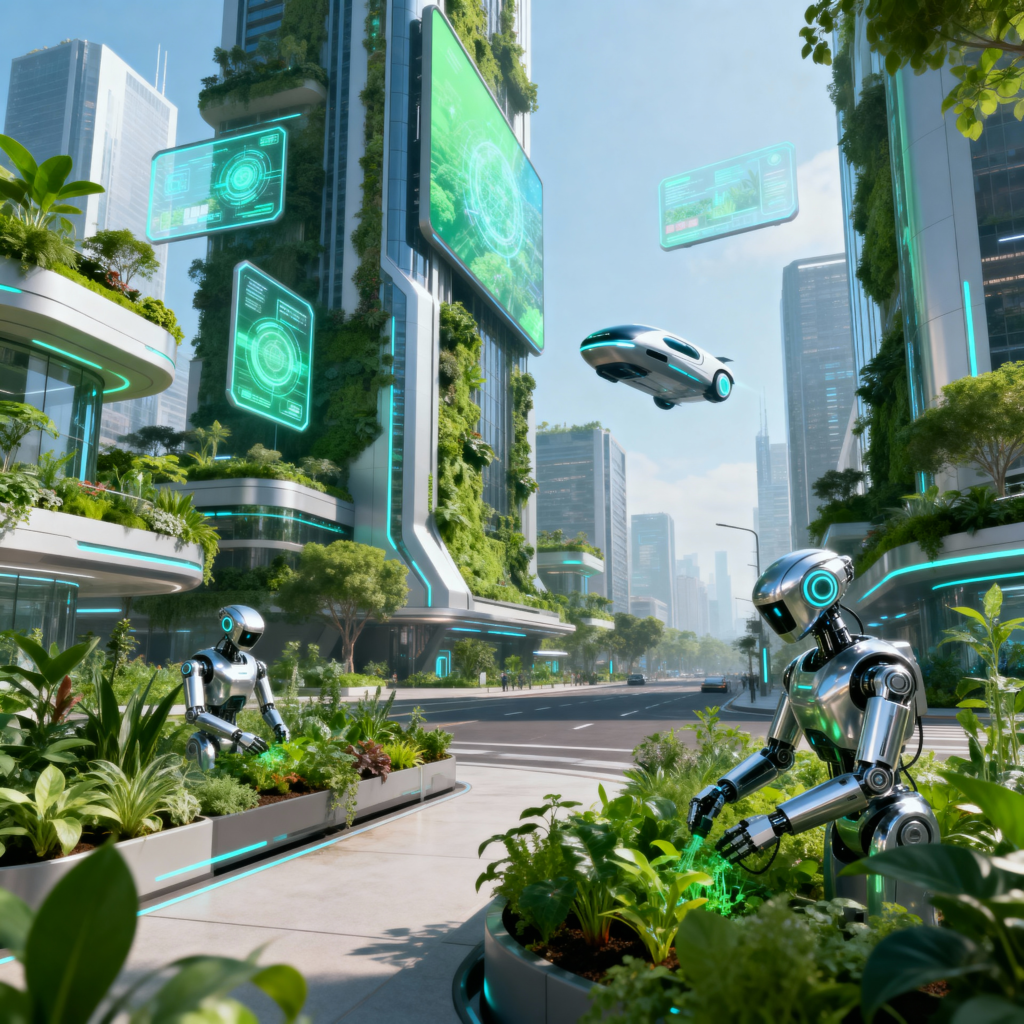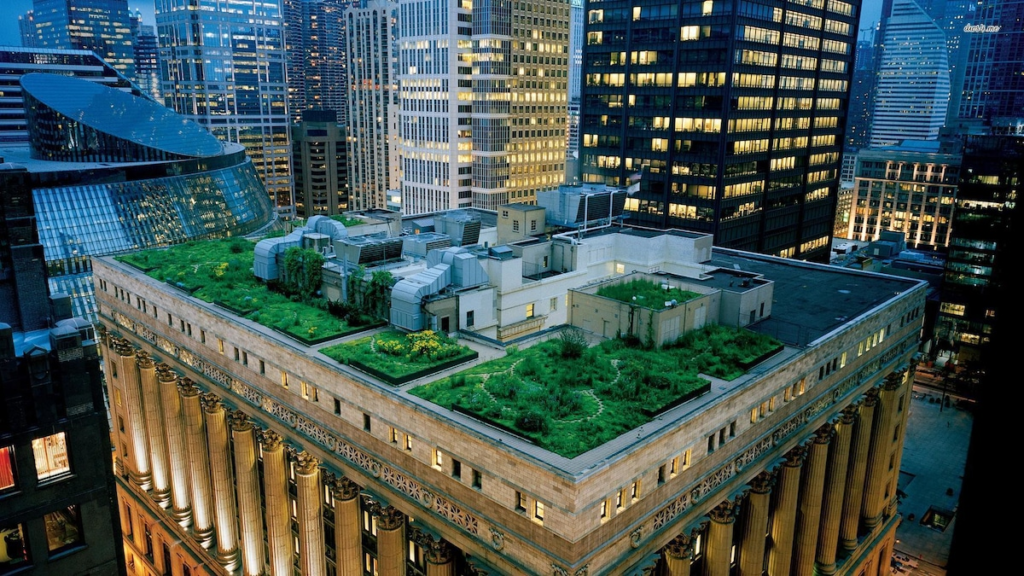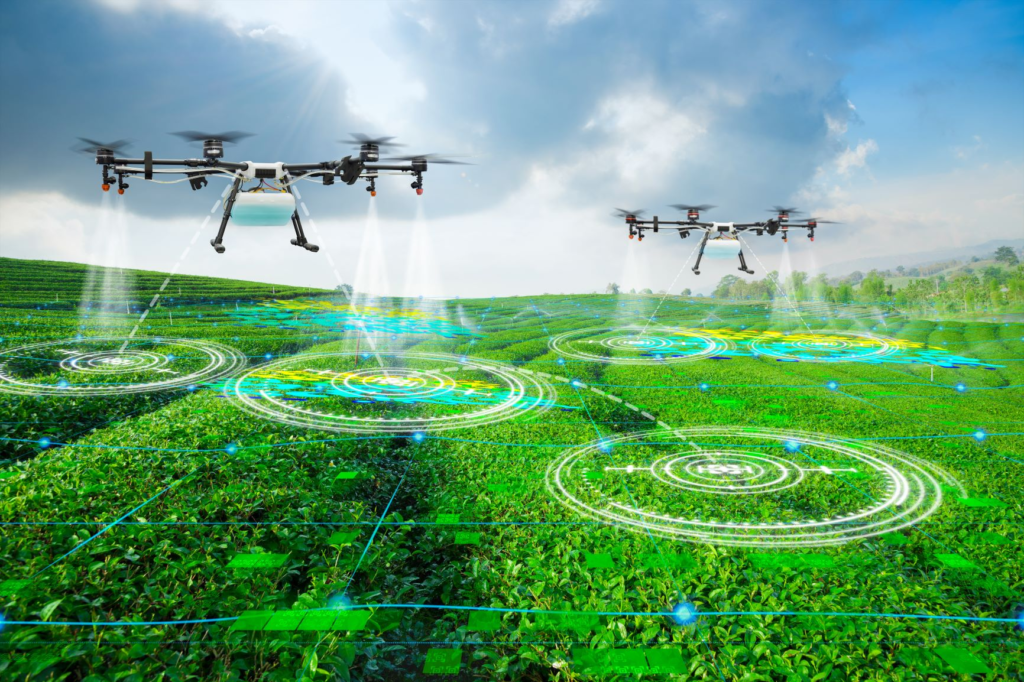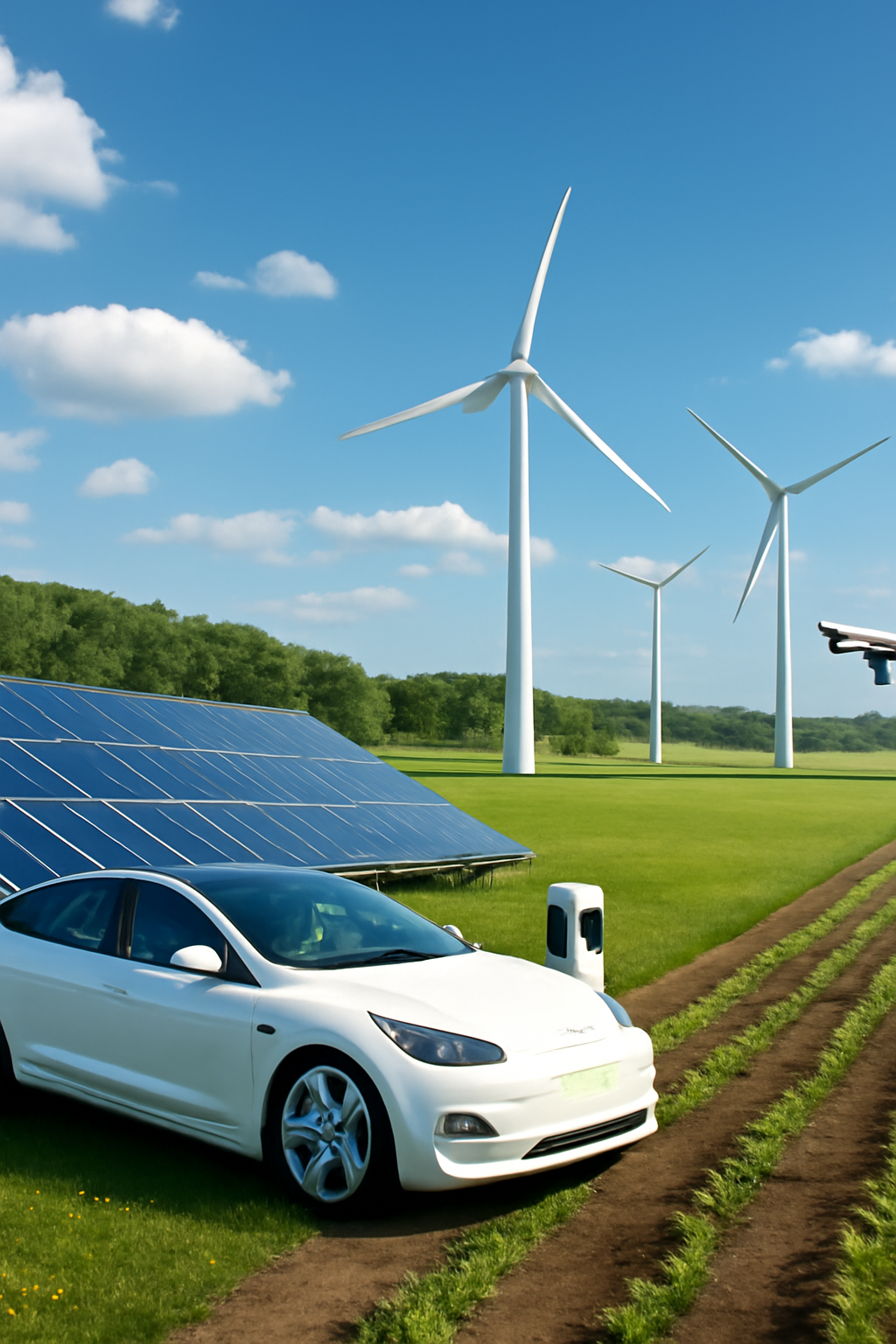A Terra está clamando e a criatividade humana está respondendo?

Há uma certa ironia em como o som de uma notificação no celular captura nossa atenção com tanta facilidade, enquanto os sinais do planeta passam despercebidos.
Ainda assim, a Terra continua falando — por meio de secas mais longas, tempestades violentas e ondas de calor recordes. A verdadeira pergunta é: vamos ouvir a tempo?
O que torna este momento esperançoso é que a mesma engenhosidade que criou satélites, smartphones e redes globais também pode ser usada para restaurar o que foi danificado. A tecnologia verde já não é um sonho de ficção científica; é uma revolução silenciosa, porém poderosa, que já está moldando como vivemos, construímos e produzimos.
Longe de ser apenas um setor econômico, ela está se tornando uma filosofia de sobrevivência — provando que o progresso é possível sem sacrificar o planeta que lhe dá sentido.

☀️ Sol e Vento: Energizando um Mundo Mais Limpo
Há algumas décadas, o petróleo era o grande símbolo da prosperidade. Hoje, a energia vem de algo muito mais democrático: luz solar e ar.
Telhados antes cobertos apenas por telhas agora abrigam painéis fotovoltaicos capazes de gerar energia suficiente para iluminar casas inteiras. Em terra e no mar, enormes turbinas transformam brisas suaves em eletricidade em escala urbana.
A verdadeira revolução não está apenas nos equipamentos, mas na acessibilidade.
Em muitos países, produzir energia solar já é mais barato do que manter usinas de combustíveis fósseis. A ideia de independência energética deixou de ser exclusiva de governos ou grandes empresas — famílias e cooperativas de bairro estão se tornando suas próprias fornecedoras de energia.
A transição não é imediata, mas cada novo painel instalado nos aproxima de um futuro em que energia limpa será simplesmente o padrão.
🚲 Mobilidade Reimaginada
Se o século passado foi obcecado por carros, o próximo pode pertencer ao silêncio.
Veículos elétricos deslizam pelas ruas sem o ruído metálico que antes simbolizava progresso, mas que acabou se revelando poluição com motor.
Novos modelos de deslocamento urbano ganham espaço: bicicletas e patinetes elétricos cruzam o trânsito, reduzem congestionamentos e convidam a um ritmo mais humano de deslocamento.
Essa mudança vai além da tecnologia; ela reflete novos valores — comunidade, ar limpo, responsabilidade compartilhada e a redescoberta do espaço para pedestres.
Nas cidades mais avançadas, urbanistas falam menos em potência e mais em qualidade de vida. O futuro não é sem carros, mas com mais consciência sobre eles.

🌾 Agricultura Inteligente: Quando a IA Encontra o Solo
No campo, a revolução digital assume uma forma surpreendentemente orgânica.
Produtores brasileiros utilizam drones para monitorar pragas. Sensores enterrados no solo medem a umidade antes que uma única gota de água seja desperdiçada. Modelos de aprendizado de máquina indicam o momento ideal para irrigar ou fertilizar.
Essa abordagem, conhecida como agricultura de precisão, reduz custos e impactos ambientais, ao mesmo tempo em que produz mais alimentos com menos recursos. Onde antes predominava a monocultura, os dados se tornam a nova semente, equilibrando produtividade e preservação.
Não se trata de substituir agricultores, mas de fortalecê-los.
A tecnologia, em sua melhor forma, amplia a sabedoria que a terra já possui.

🏗️ Arquitetura que Respira
As cidades também estão aprendendo novas formas de existir. Edifícios com inteligência ambiental captam água da chuva, mantêm telhados verdes e utilizam a luz natural como principal fonte de iluminação.
É possível imaginar casas que se adaptam ao ambiente: paredes que regulam a temperatura interna, luzes que despertam com o sol e descansam com a lua, sistemas que armazenam cada gota de chuva.
Essas ideias transformam o próprio conceito de conforto.
A sustentabilidade deixou de ser tendência estética; tornou-se uma ética arquitetônica — um pacto entre a moradia e o mundo ao seu redor.
♻️ Do Descarte ao Valor
A expressão “jogar fora” perde sentido, porque não existe “fora” em um planeta finito.
A economia circular inverte a lógica tradicional: o que uma indústria descarta torna-se matéria-prima para outra. Plásticos viram tecidos, resíduos orgânicos geram energia por biomassa, computadores antigos são desmontados para reaproveitamento de metais raros.
Esse modelo faz mais do que reduzir impactos ambientais. Ele cria economias de retorno, gera empregos e transforma responsabilidade em valor econômico.
O lixo nunca foi o problema — o problema era a falta de imaginação.

💚 O Poder do Consumidor Consciente
Toda revolução precisa de impulso. No caso da tecnologia verde, essa força vem das escolhas cotidianas.
Cada vez mais pessoas optam por marcas com compromissos ambientais, apoiam empresas que compensam emissões e desenvolvem produtos recicláveis.
Cada decisão — o que comemos, vestimos ou usamos — torna-se uma forma sutil de ativismo. Multiplicadas por milhões, essas escolhas reconfiguram setores inteiros.
Governos passam a regular de outra forma, startups surgem com propósito e a sustentabilidade deixa de ser um privilégio de poucos.
O mercado começa a aprender uma verdade simples: ética vende.
🤖 Inteligência Artificial como Aliada do Clima
Se algoritmos conseguem prever hábitos de consumo, também podem prever a queda de florestas.
Pesquisadores ao redor do mundo utilizam IA para proteger a natureza — analisando imagens de satélite para detectar desmatamento, otimizando rotas logísticas para reduzir combustível e criando sistemas de alerta precoce para desastres naturais.
A IA não salvará o planeta sozinha, mas pode nos ganhar tempo para mudar de rumo.
Quando usada com transparência e responsabilidade, os dados deixam de ser apenas números — tornam-se antecipação e cuidado.

🌎 Um Amanhã Mais Verde Começa em Nós
A tecnologia verde não é apenas um conjunto de ferramentas; é uma mudança de consciência. De painéis solares nos telhados a copos reutilizáveis, de aplicativos sustentáveis a fazendas regenerativas, essas iniciativas revelam um desejo crescente de viver de outra forma.
O desafio ainda é grande, mas a direção está clara:
Menos desperdício, mais sabedoria; menos ganância, mais crescimento; menos pressa, mais equilíbrio.
O verdadeiro progresso não está em correr contra a natureza, mas em recuperar o fôlego e voltar a caminhar ao lado dela.
